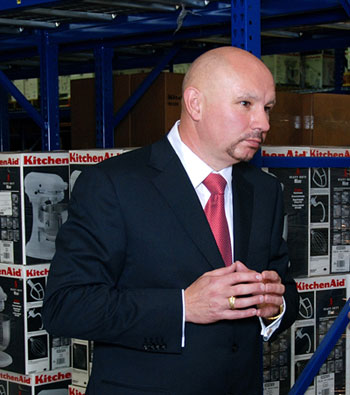As Free Traders It Is Our Obligation to Support NAFTA
At a time when our country is fixated on a protracted political process passionately promising to cure all our ills, this would be an excellent time for our incoming president to put forward his vision to solve the most critical economic issue of our time: our degenerative trade deficit.
While Congress grapples with car companies, real estate and a down economy, they are ignoring the greatest accelerator for job creation: exports. Unlike other seemingly impossible challenges we face, our trade deficit is something we can correct in a relatively short period thus creating millions of well-paying jobs. It is as straightforward as establishing an environment where U.S. exporters are allowed to compete.
First, we the people must demand that the new administration understand trade, be able to articulate a comprehensive strategy in dealing with our global competitors and have the guts to fight.
The North American Free Trade Agreement (NAFTA) is by far the most beneficial piece of trade legislation Congress has ever passed. At a time of economic upheaval where job creation must be at the heart of our recovery it is mind-boggling Congress could contemplate changing or even opting out of the agreement. As supporters of fair market access for American exporters, it is our obligation to push Congress to maintain NAFTA with its current provisions. Since NAFTA was implemented, the U.S. added 30 million new jobs.
Former U.S. Secretary of Commerce, Carlos Gutierrez, has aptly stated when NAFTA country partners hear the U.S. is seeking to renegotiate the agreement; it causes uncertainty about America’s commitment to its trade partners causing them to seek out new partners such as the European Union.
This becomes an extremely sensitive issue considering that during 2008, the U.S. exported $200 billion to Canada (up 11 percent over 2007) and $115 billion to Mexico (up 13 percent). In fact, 30 percent of all U.S. trade goes to NAFTA partners.
Further, most Americans don’t appreciate that today, Canada is America’s biggest trade partner, and it is where the U.S. gets most of its crude oil. It does NOT come from the Middle East.
Consider that Mexico imports more U.S. products than China and Japan combined, and that Mexico is neck-and-neck with Saudi Arabia when it comes to energy exports to the U.S.
Now NAFTA faces two real challenges that need to be addressed. First, is the rumblings from Congress to alter NAFTA, which must be stopped at all costs.
The second challenge comes from growing congressional protectionist sentiment and the ramping up of Homeland Security scrutiny between the U.S. and Canada. By clamping down on trucking between the U.S. and Canada and Mexico, the added barriers imposed on border access drives up costs and reduce the productivity of American workers.
At a time when this country is working to stimulate the economy and create jobs, anything that interferes with Free Trade Agreements such as NAFTA, is an anti-stimulus initiative. The relationship between the U.S. and Canada and Mexico is one of the real drivers of the U.S. economy. To put it in perspective, in the 14 countries where U.S. exporters enjoy Free Trade Agreements, their revenues are up 40% over countries where the U.S. does not have Free Trade Agreements.
In 2008, excluding energy imports, the U.S. had a $3 billion surplus with our Free Trade Partners compared with more than a $500 billion deficit with countries where we do not have Free Trade Agreements. The problem is not that we have too many Free Trade Agreements, it is we have too few.
Now as some in Congress are moving toward an isolationist mentality, a quick trip back to 1930 conjures up nightmares of the Smoot-Hawley Tariff Act, which increased tariffs on imported goods to record levels. Foreign governments retaliated with vastly increased tariffs on American products. As a result world trade shrank by more than sixty percent. In just two years American unemployment soared 300%. It is widely believed America’s withdrawal from the world market put the “Great” into the “Great Depression.” It turned a severe but manageable recession into a generation-long depression that only a horrific world war could cure.
If the U.S. wants to stimulate the economy, we must all support Free Trade Agreements such as NAFTA, and put pressure on Congress to ratify the pending Free Trade Agreements with Colombia, Panama and South Korea.
Let’s remember that small and medium-size companies have accounted for more than seventy percent of new job creation over the past decade and represent ninety-seven percent of America’s exporters. When the economy begins to recover, it will start with small and medium-sized companies who can and will create thousands of jobs through the expansion of Free Trade Agreements, of which NAFTA should be the model. Let’s not kill the goose that laid the golden egg through populist pandering and naked naivety.
By Neal Asbury

